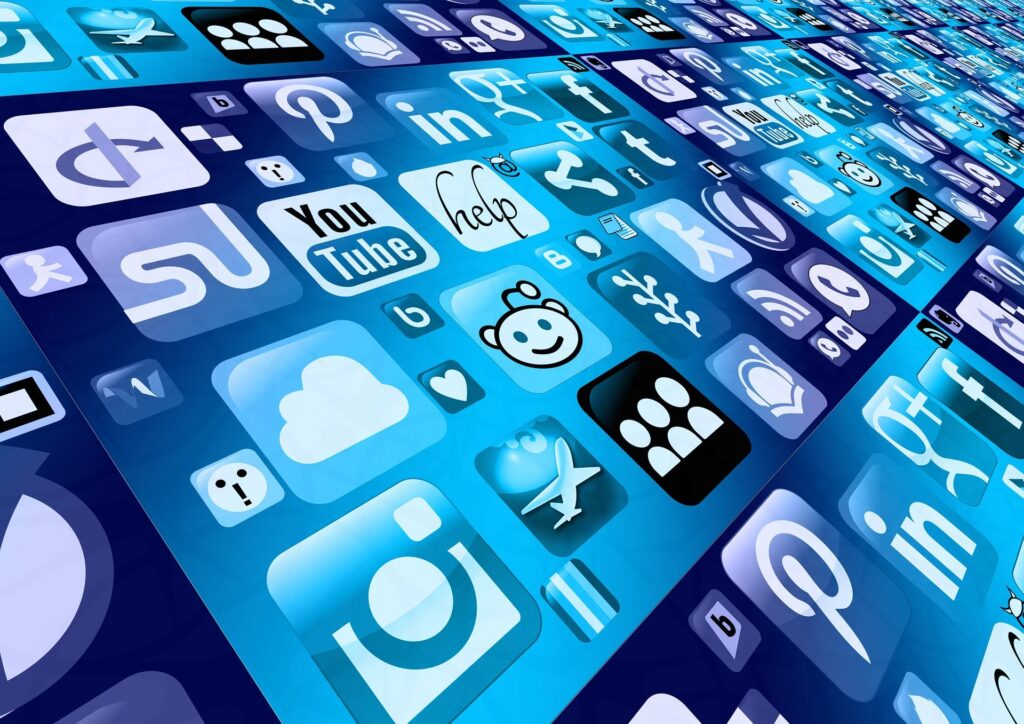Social Media impact
Using social media for a long time and surprisingly the platform that is supposed to keep people connected, can instead make you feel extremely isolated and worsen psychological issues.
It’s time to realize that our lives are becoming more and more digitalized every day, and I don’t believe humanity or the financial world can survive if people don’t have access to the internet at some point.
In some ways, being a part of the digital community and having endless access to the entire world and its features is incredibly reasonable for businesses and not just individuals.
Humans are sociable creatures by nature. To prosper in our lives, we require the company of others, and the quality of our interactions has a significant effect on self – esteem and satisfaction. Staying socially active can give us peace of mind.
Especially after Covid, when entire world was shut down and people were isolated in their houses with families or sometimes all alone, the only place where people could be busy and entertained was the digital world. Do you remember how we all became social media stars and created and joined challenges? There were people who even became super rich because of their high demanded content.
Of course there were Instagram, Tiktok, Youtube and other social media networks before the pandemic, but who had that much free time to be 24 hours online and create videos?
Though, the network owners always tell us that our security is their number 1 concern and they are doing their best to control the traffic, they not always succeed.
And it’s not only about security and low control traffic. Not everything which is posted on social platforms are harmful or is because of lack of security.
Social Media effects on mental health

Social media can transform your perspective on reality and have a huge impact on yourself. Whilst digital networks have some beneficial impacts, and there are several successful social media experiences, it also has many disadvantages.
While Instagram, for example, can be a source of pure motivation and visual inspiration for many of us, it can also be a source of demotivation and cause distractive psychological and self-esteem issues.
Some of us use Instagram to be inspired by our favorite bloggers and influencers, whether we’re seeking for vacation recommendations, luxury lifestyle ideas, or ways to improve our personal style.
Others, on the other hand, are easily disturbed and disappointed in their own lives because they witness how others live their best lives, have costly clothes or automobiles, are able to travel extensively, and just have things that they will never be able to buy.
We all know that other people just share the highlights of their lives, but that doesn’t take away the emotions and frustration you feel when you click on someone’s edited vacation photos or read about their fantastic new job opportunity.
I, for one, never show my audience a picture of my daily unappealing tasks, such as telling people that my house is a mess and that I am tired or sick and that I am unable to clean, and then showing that on social media alongside my travel photos and videos, or telling people that I am unmotivated in my career, and so on. We always want to present our best selves to others.
Yes, I travel frequently and enjoy capturing gorgeous photographs, however even in this case, I edit my photos extensively before releasing them on my social media networks. It may sound strange, but I sometimes feel envious of my own material since it appears to be flawless, something we never achieve in real life.
What we see in the digital world hardly resembles reality. I began to unfollow those who attempted to show the world their wealth rather than themselves. And this isn’t just about/for me; it’s also about/for the people who can’t even imagine going shopping every day and being concerned solely about spending $400 or $600 on a bag; that’s not polite.
Because the internet has been more accessible to the world in the last 3-4 years, and everyone, largely non-professional people, have begun to run over the digital world, becoming a digital influencer has become a trendy, yet simple, job.
Whether you agree or not, blogging is all about marketing. You must understand psychology, digital and social ethics, and how to embrace those followers or audience members who will learn from you while not offending anyone’s values or social position.
When you see others posting about living their best lives, simply remember that 50% of what they say is exaggerated, and the other 50% is something you can achieve as well.
Try to become more informed about your habits and tendencies. Because the major percent of your online behavior is based on aimless browsing and the greatest approach to regain control is to be more knowledgeable of how you use digital platforms.
Follow me on Instagram and let me know if you have any questions.

Comments are closed.